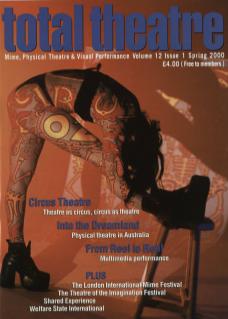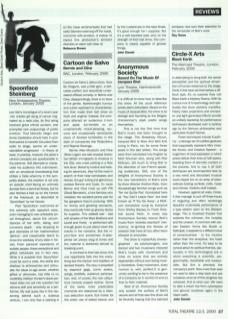Lee Hall's monologue of a seven year-old, autistic girl dying of cancer originated as a radio play. Its first airing received great critical acclaim, and prompted rare outpourings of public emotion. That Marcello Magni and Annie Castledine should take it upon themselves to transfer this piece from radio to stage, seems an understandable progression in theory at least. In practise, however, the piece's central concepts are questionable in the extreme. Hall attempts to manipulate his audience into submission, with an emotional browbeating that strikes a triple whammy in the sympathy stakes. His creation is not only an autistic child facing an untimely demise from a terminal illness, but he also hitches a foot up on the horrors of the holocaust, as described to 'Spoonface' by her Doctor.
Poor ‘Spoonface' overcomes all this adversity with apparent ease, even managing to wax unfeasibly lyrical throughout, about the circumstances of her birth, being, and imminent death – only stopping to give examples of her mathematical ‘genius', and inexplicable talent to know the weekday of any date in history. From personal experience of autistic people, these exceptional and gifted individuals are in fact rare. While it is possible that 'Spoonface’ could be such a case, the ability she displays to philosophise and articulate her ideas at age seven, whether gifted or otherwise, has little or no credibility. Kathryn Hunter's brave portrayal does not call into question her obvious skill and sensitivity as a performer. My real query lies in the reasoning behind such a dubious venture. I can only fear a cashing in on the mass sentimentality that had radio listeners swerving off the roads, overcome with emotion. A motive I'd expect this production's eminent directors to steer well clear of.

